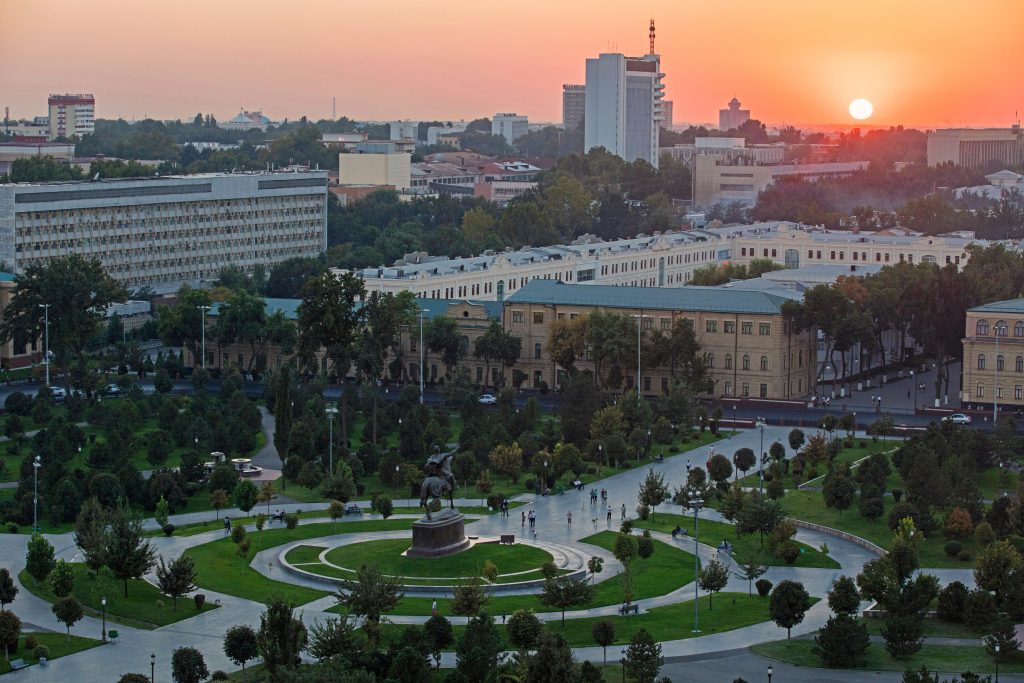TASHKENT
Uzbekistan’s President Shavkat Mirziyoyev has announced an immediate set of government measures to minimise the negative impact of “external risks” hinting at the economic situation that emerged after the sanctions against Russia.
The measures that the president announced included cutting regional budget expenditures by $877.5 million, postponing implementation of new changes in tax administration, allotting extra rolling credits to enterprises and abolishing fines for delayed receivables for domestic importers working with the companies in Russia, Ukraine and Belarus until the end of the year.
President Mirziyoyev has also instructed the government to hold negotiations with companies from Europe, China, India, Turkey, South Korea and Japan within a month and to start practical work on the integration of domestic enterprises into their production chains.
He ordered cutting government spending by 10 trillion Uzbek soums (around $877.5 million), which included a prohibition of purchasing cars, office equipment and building repairs in a move “to maintain macroeconomic stability.”
The president said that the foreign exchange market and the foreign currency exchange rate stabilised, and the exchanges began to trade with Russian roubles and Chinese yuan, according to president’s press service.
“On this occasion, our people should not have excessive anxiety and concern. We have enough reserves to prevent sharp fluctuations in the foreign exchange market,” Mirziyoyev told the government meeting.
Uzbek banks will provide entrepreneurs with an additional 10 trillion soums of “revolving” loans for their working capital and for purchasing raw materials. These funds will be directed primarily to exporters and manufacturers of food and consumer goods.
The government was also instructed to review immediately and make a reasonable proposal to revise the rates of excises and customs duties on the import of such food products as sugar, flour, butter, meat, tea, baby food and dairy products.
President has also tasked regional and local governing bodies to strengthen the social protection of the population, accelerate the creation of new jobs, as well as constant monitoring of inflation and taking preventive measures against the sharp rise in consumer prices.
Russia, which has come under western sanctions, is one of Uzbekistan’s largest trading partners.
Over 3 million Uzbeks work in Russia and send home millions of dollars annually. In 2021, remittances to Uzbekistan amounted to $8.1 billion, the bulk of it from Russia.
Uzbek migrant workers are expected to experience losses amid the depreciation of the Russian rouble and difficulties wiring the money back to their homes due to sanctions imposed on some of the Russian banks.
The Central Asian country’s gross domestic product (GDP) accelerated to 7.4 percent in 2021 against 1.9 percent in 2020, supported by growth in main industries and sectors.
In January Uzbek officials said that Uzbekistan’s real GDP growth in 2022 was expected to be around 5.5-6.5 percent. The large-scale fiscal stimulus that has been implemented in 2020-2021 will be one of the main factors supporting economic activity in the first half of 2022, they said.
The country’s budget envisages 6 percent economic growth this year and annual inflation at around 9 percent.
According to the World Bank, Uzbekistan’s GDP is projected to grow by 5.6 percent in 2022 and by 5.8 percent in 2023.

